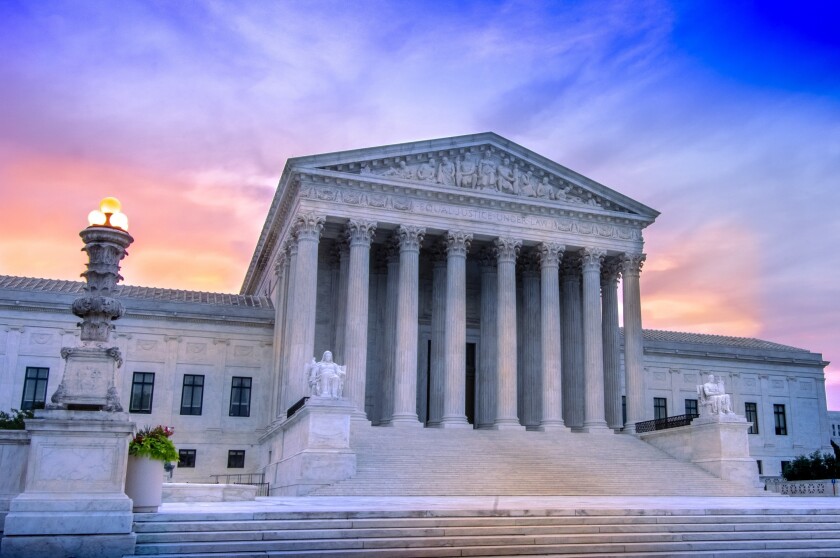It's set to be a busy week for trademarks at the US Supreme Court. Justices have two key cases to consider.
Tomorrow, March 21, the court will consider oral arguments in Abitron Austria v Hetronic International. Then, on Wednesday, March 22, parties will present their sides in Jack Daniel's Properties v VIP Products.
The Jack Daniel's case examines whether dog toys using the whiskey brand's trade dress and the words 'Bad Spaniels' should be subject to the same likelihood of confusion analysis as other products under the Lanham Act, or if they should receive heightened first amendment protection as an expressive work.
This is undeniably the flashier of the two disputes.
But tomorrow’s Abitron hearing should not be overlooked.
The case came about when in 2021 the Court of Appeals for the Tenth Circuit upheld a $90 million damages award to manufacturer Hetronic, even though 97% of the defendant’s $90 million in sales had occurred outside the US.
The court upheld this award on the basis that the defendant’s foreign conduct produced substantial impacts on US commerce because it had diverted sales that would have otherwise flowed into the US.
The Supreme Court has a tough task – deciding the test that courts should use to address the limits of the Lanham Act’s extraterritorial reach.
I do believe that the Tenth Circuit went too far when it upheld a large damages award primarily based on foreign sales.
SCOTUS should overturn this decision and limit the extraterritorial reach of the Lanham Act as much as possible.
Stick to your lane
For starters, it’s important to prevent US courts from overstepping.
If there’s a problem with sales that occur overseas, courts in those countries should hear those matters.
It’s not a good look for US courts to be taking on issues that judges in other jurisdictions are perfectly capable of handling themselves.
And the problem could come back to bite US brands too.
If US courts can take up cases primarily involving foreign sales, how will other countries react?
It’s possible that judges in other jurisdictions could then take up cases primarily involving US sales. This would only create additional challenges for brands.
I'm not saying that it’s never the right decision for a US court to weigh in on a trademark case involving foreign sales, or for overseas judges to do the same for US sales.
There could, of course, be cases that have an extreme enough effect on US consumers to justify such intervention.
But relying on the argument that international commerce diverted foreign sales from US trademark owners, as is the case in Abitron, does not meet this bar.
SCOTUS should ensure that such an intervention only happens when it’s truly justified.
Clearance complications
I’m also concerned that upholding the Tenth Circuit’s decision could make trademark clearance more difficult.
Companies shouldn’t have to worry that they’re infringing marks in countries that they are not planning on selling in. But if the Tenth Circuit's test is upheld, this could be a concern.
Businesses across the world would want to avoid the increased risk of being sued in US courts. They therefore might avoid certain marks that they would otherwise have registered. And US firms could do the same if judges in other countries take up the Tenth Circuit’s standard.
There are already so many trademarks, and it’s difficult enough to find new ones that don’t infringe existing brands. This process will only get more complicated if the extraterritoriality of the Lanham Act goes too far.
It’s already important to consider foreign trademark registrations when clearing marks, of course. Firms could decide not to use a brand if a party in a country they may want to launch in already owns a similar mark, for example.
But this process needn’t be any more challenging than it is right now.
SCOTUS has the opportunity to overrule an overreach by the Tenth Circuit and develop a test that sufficiently limits the extraterritoriality of the Lanham Act.
Brands in the US and abroad will be better off it does.











